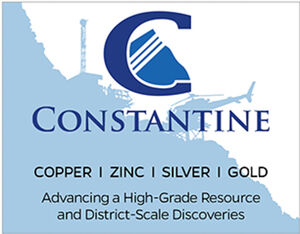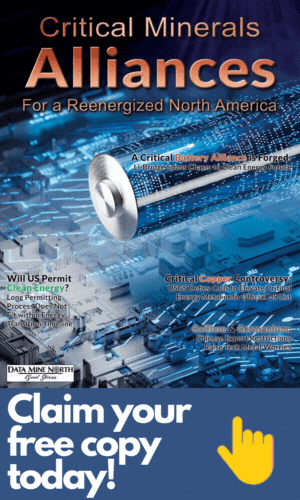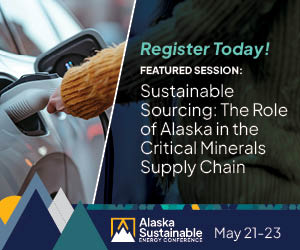Teck Cominco, EPA enter pollution pact
World's largest zinc producer agrees to investigate and multiyear studies of contamination in Upper Columbia River basin
Last updated 6/25/2006 at Noon
After several years of legal wrangling and negotiations, Teck Cominco Metals Ltd., the world's largest zinc producer, and the U.S. Environmental Protection Agency have reached an international agreement to investigate contamination in the Upper Columbia River in northeast Washington.
Under the agreement, which EPA hailed June 2 as a "landmark" settlement, Teck Cominco will fund and perform EPA-monitored scientific studies of decades of past pollution in the river running downstream about 150 miles from Canada into U.S. waters. The studies will produce a science-based report on the ecological and human health conditions of the Columbia River from the Grand Coulee dam to the Canadian border, an area encompassing Lake Roosevelt.
The studies also represent the initial step in the clean-up process, according to EPA officials.
"With this historic agreement, we have moved from opposite sides of the table to sit down together as environmental problem solvers," said Michael Bogert, EPA's regional administrator for the Northwest. "By delivering results through cooperation over confrontation, the Bush Administration is avoiding years of inefficient litigation and beginning the restoration of the river basin."
Doug Horswill, senior vice president, environment and corporate affairs for Teck Cominco, called the agreement "a great step forward in allowing us to fulfill our longstanding commitment to protect the environment as a responsible corporate citizen."
"From day one, Teck Cominco has voluntarily sought a cooperative arrangement with U.S. authorities to address the public's concerns surrounding Lake Roosevelt," Horswill said in a statement June 2.
The agreement will be executed under the oversight of the EPA and with the participation of the Government of Canada, the U.S. Department of the Interior, the State of Washington, and the Spokane and Confederated Tribes of the Colville Reservation.
Horswill said the Canadian government's participation was instrumental in achieving the settlement.
Red Dog ore involved
Teck Cominco has agreed to complete an investigation of contamination along the upper Columbia and Lake Roosevelt and conduct an evaluation of cleanup options. This will be done under EPA oversight. If Cominco complies with this agreement, a comprehensive investigation into the location and extent of heavy metal contamination will be completed in three to five years. Cleanup will take a similar length of time.
The agreement calls for Teck Cominco to assess environmental contamination caused by its smelter operations in Trail, British Columbia, just 10 miles north of the U.S. border.
The 100 percent-owned Trail complex is one of the world's largest fully integrated, zinc and lead smelting and refining complexes. Production capacity totals about 290,000 tonnes per year of zinc and 120,000 tonnes per year of lead. Twenty other metal and chemical products are also produced.
A large portion of the zinc concentrates treated at Trail come from the Red Dog Mine in Alaska with the remainder from other mines in Canada, the United State and South America. Lead concentrates are purchased from U.S. mines, including Red Dog, and those in South America.
Washington State officials worried
Washington state officials responded cautiously to news of the agreement June 2, saying the pact was a necessary first step in getting to cleanup of the company's pollution of Lake Roosevelt.
The State of Washington maintains that Cominco and its predecessors for more than 90 years discharged pollution into the Columbia River, which then flowed into Washington from smelter operations in Trail, British Columbia. Washington officials say the pollution caused significant contamination in Lake Roosevelt, the large reservoir behind Grand Coulee Dam.
Several years ago the State of Washington joined the Colville Tribes in initiating litigation to force Cominco to begin the cleanup of Lake Roosevelt.
"It is unfortunate that it took a lawsuit to get Cominco to step up to its responsibility to clean up Lake Roosevelt," said Jay Manning, director of the Washington Department of Ecology. "Our goal has been, and will remain, protecting our citizens and our environment. If Cominco complies with the agreement announced today, we will advance the cleanup and our goal of protecting our citizens."
Teck Cominco, however, has maintained that it is not solely responsible for pollution in the region.
Washington state officials said they will closely monitor activities mandated by the agreement, noting that it is "unique and untested."
"This agreement is a private contract between the federal government and an international mining company," Manning said in a statement. "That departs from normal settlement and cleanup procedures under both federal and state cleanup laws. Usually, these agreements take the form of a consent order or a consent decree, which is clearly enforceable and reliably requires a polluter to clean up contamination to appropriate standards. We will hold Cominco to its word about conducting a thorough and timely investigation."
The State of Washington will diligently oversee the process to ensure the contamination is cleaned up adequately to protect human health and the environment, Manning added.
Superfund law governs pact
But EPA said its agreement with Teck Cominco is fully enforceable and consistent with U.S. Superfund models and policy.
"Teck Cominco agreed to complete a remedial investigation and feasibility study consistent with U.S. Superfund law," EPA said.
In addition, the agency retained full oversight authority for the duration of the study, which the agency originally estimated would take four years when it first ordered Teck Cominco to conduct the assessment in 2003.
Under the new agreement, Teck Cominco will fully fund three to five years of study to completion and pay federal oversight costs up front. In addition the settlement provides for state and tribal involvement throughout the study and $1.1 million in annual funding for that participation.
Teck Cominco also agreed to place $20 million in escrow to provide financial assurance for the project.
EPA said it began its assessment in the Upper Columbia River in 2000 following a petition by the Colville Confederated Tribes.
This Upper Columbia basin is a national recreation area visited by more than 1.5 million people annually. The multi-year study will assess risks from contamination to both people and the environment.








Reader Comments(0)